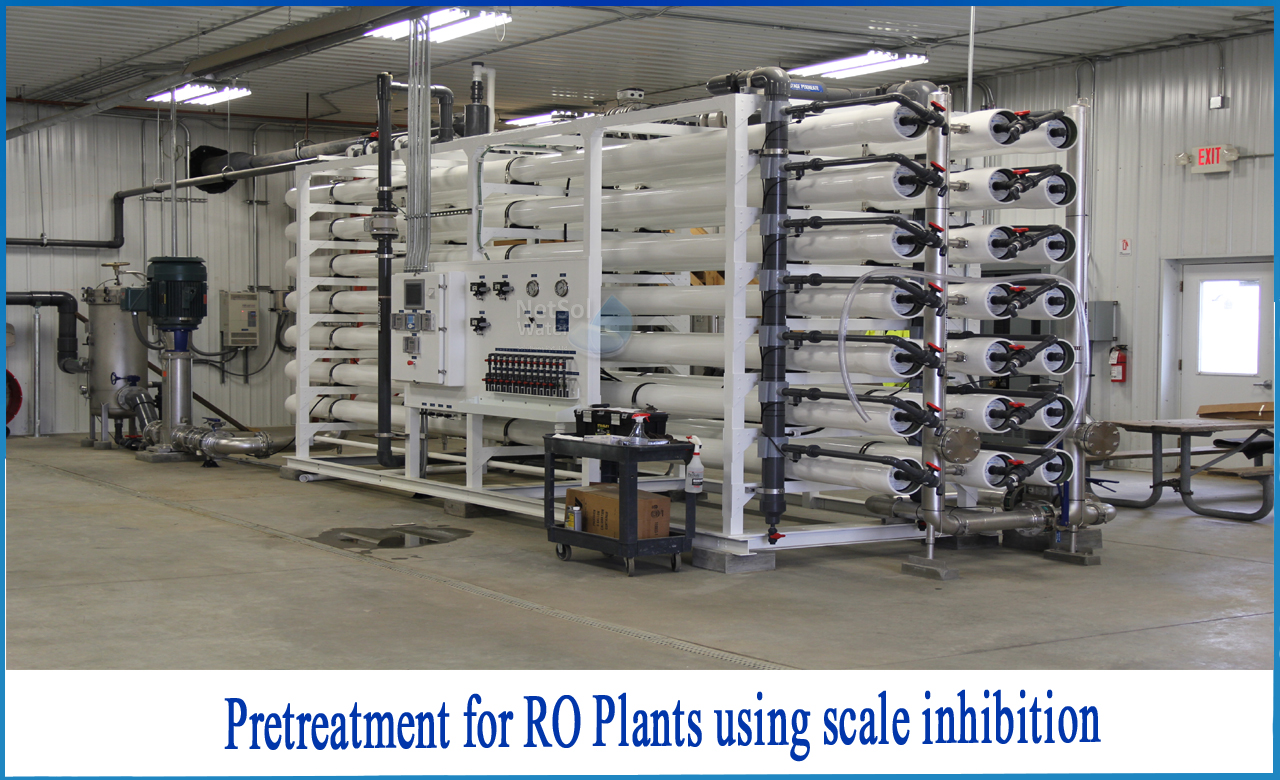Why Pretreatment require for RO Plants using scale inhibition?
Pretreatment for RO is required to remove suspended contaminants, dissolved particles, colloids, minerals, oxidants, and living organisms from raw water. Pretreatment's major goal is to make the RO's feed water compatible with the membrane. By reducing fouling, scaling, and membrane deterioration, pretreatment is necessary to improve the efficiency and life expectancy of the membrane elements.
Pretreatment of RO using scale inhibition
Any good reverse osmosis plant management programme must include the use of high-performance RO membrane scaling inhibitors.The deposition of particles on a membrane that causes it to plug is referred to as scaling. Reverse osmosis (RO) membranes and flow passageways within membrane elements will scale if they are not protected from the precipitation of sparingly soluble gases such calcium carbonate, calcium sulphate, barium sulphate, and strontium sulphate. Scale inhibitors can be used to prevent or control scaling.
Scale inhibitors are divided into three categories:
a) Sodium hexa-metaphosphate (SHMP),
b) Organo-phosphonates, and
c) Polyacrylates.
SHMP is less expensive than polymeric organic scale inhibitors. Hydrolysis of SHMP reduces scale inhibition efficiency while simultaneously increasing the risk of calcium phosphate scaling. As a result, SHMP is not commonly suggested. SHMP is less effective and stable than organophosphates. They maintain insoluble iron in solution by acting as anti-foulants. Polyacrylates (high molecular weight) are commonly used to reduce the production of silica scale through a dispersion process. All Scale inhibitors dosage rates should be based on the Scale inhibitors manufacturers' recommendations. When using an anionic scale inhibitor, avoid overdosing to ensure that no large levels of cationic polymers are present.
Pretreatment of RO using anti-scalant
Antiscalant compounds are used to keep RO membranes from scaling and fouling. Mineral fouling such as calcium sulphate, calcium carbonate, barium sulphate, silica, calcium fluoride, and strontium sulphate can all be found in scale. To break up sulphate precipitates, calcium carbonate, and other mineral fouling, antiscalant dosing should be done before reaching the RO membranes.
Due to its unrivalled efficiency in minimizing membrane fouling, antiscalant is the primary pretreatment technology for water systems. Antiscalant chemicals are used to treat low-quality feed water with high recovery rates. These can increase the time between membrane cleanings from a few weeks to years when applied appropriately. RO membrane systems would not be as effective in the water treatment sector if it weren't for antiscalant.
What can we offer?
Netsol Water is one of the leading water and wastewater treatment company in India with services in the field of WTP manufacturing, WWTP manufacturing, RO Plant manufacturing, STP manufacturing, ETP manufacturing, Water Softeners, and much more. The company designs and manufactures all in one system that are ideal for treating wastewater and the sludge generated.
For any further assistance or product-purchase related query,
Call us on +91-9650608473;
Or, write us at enquiry@netsolwater.com



